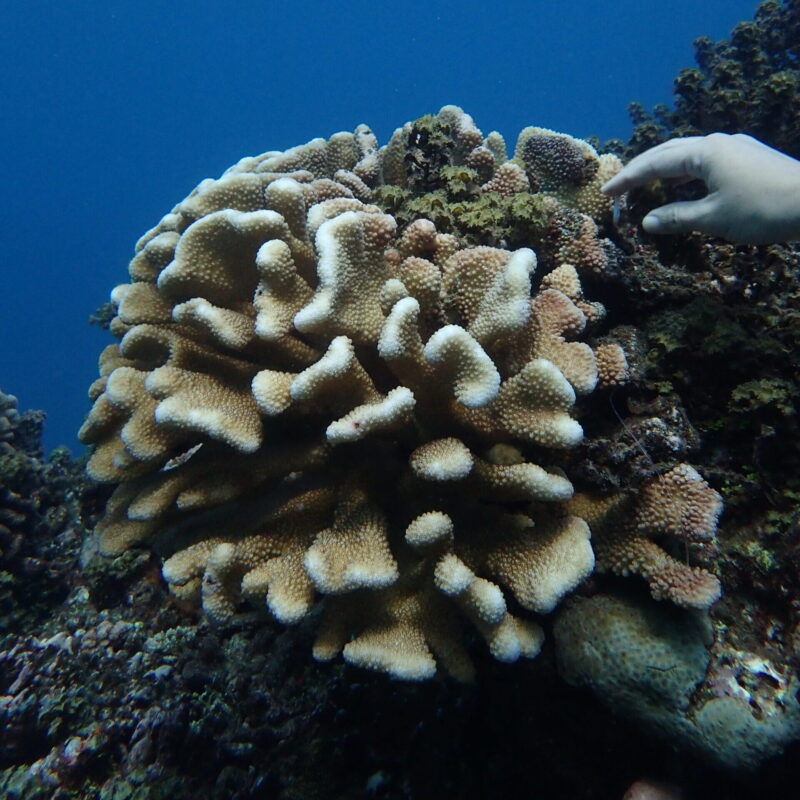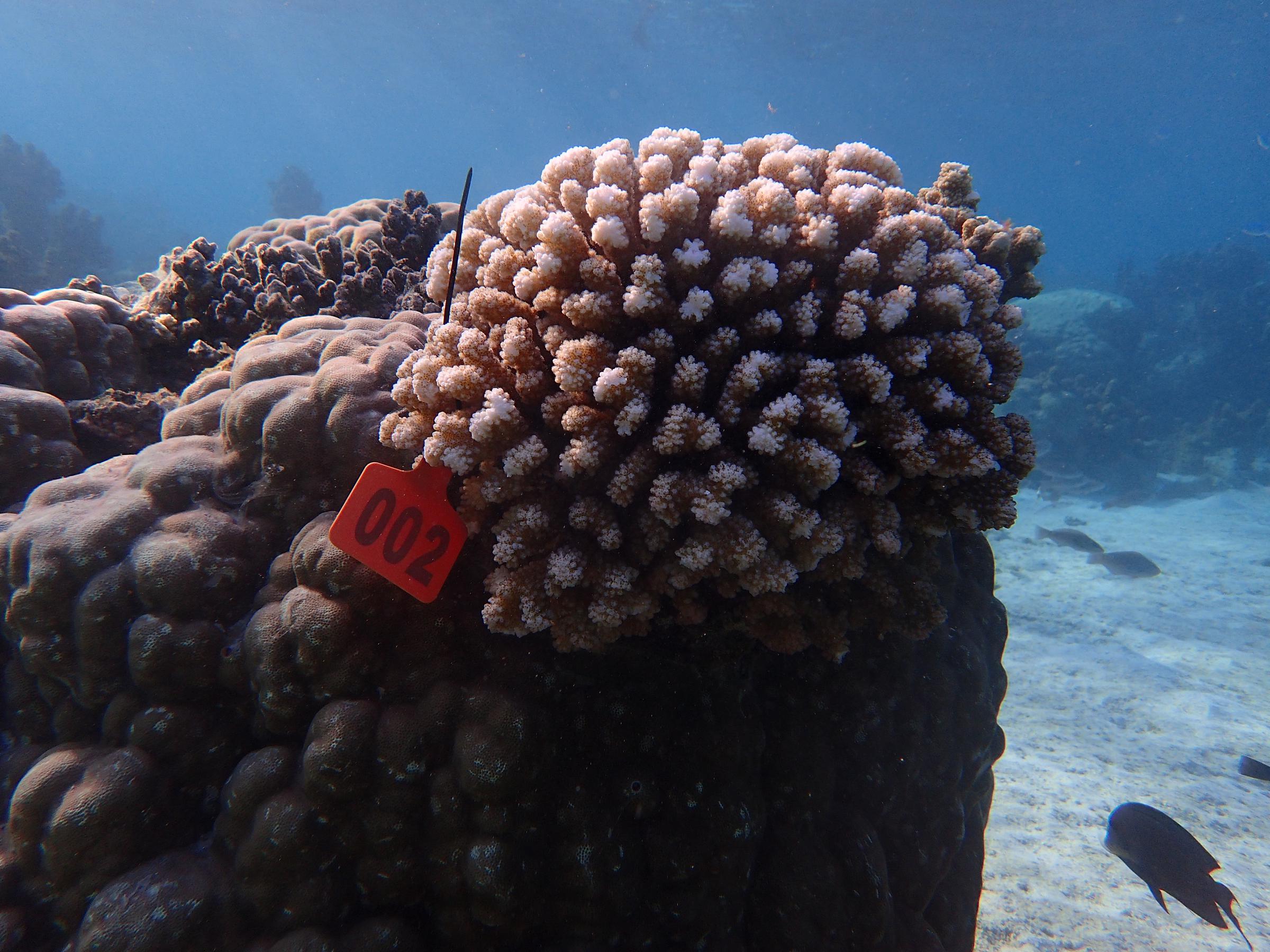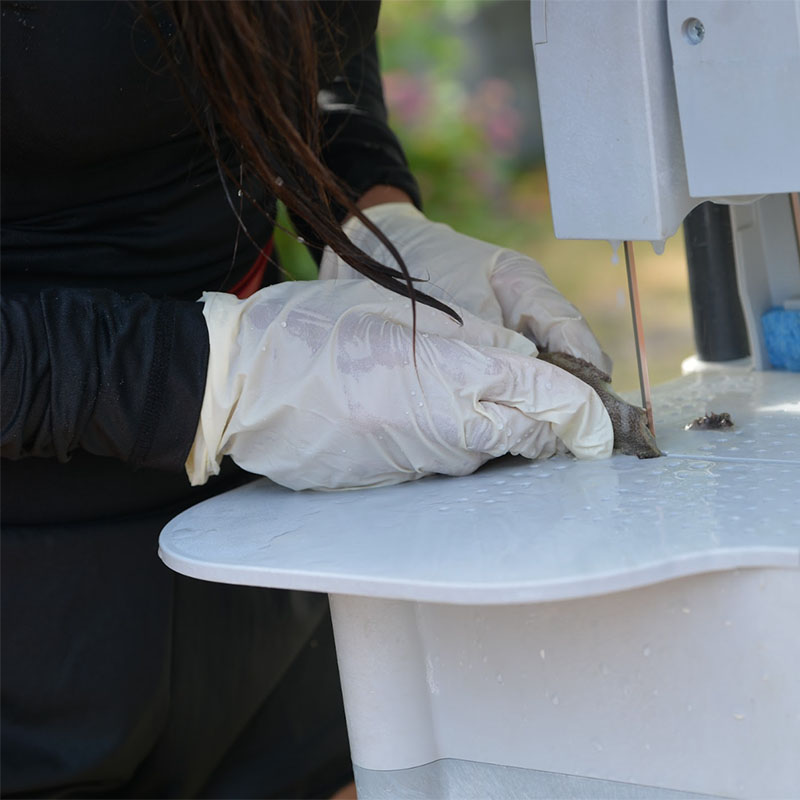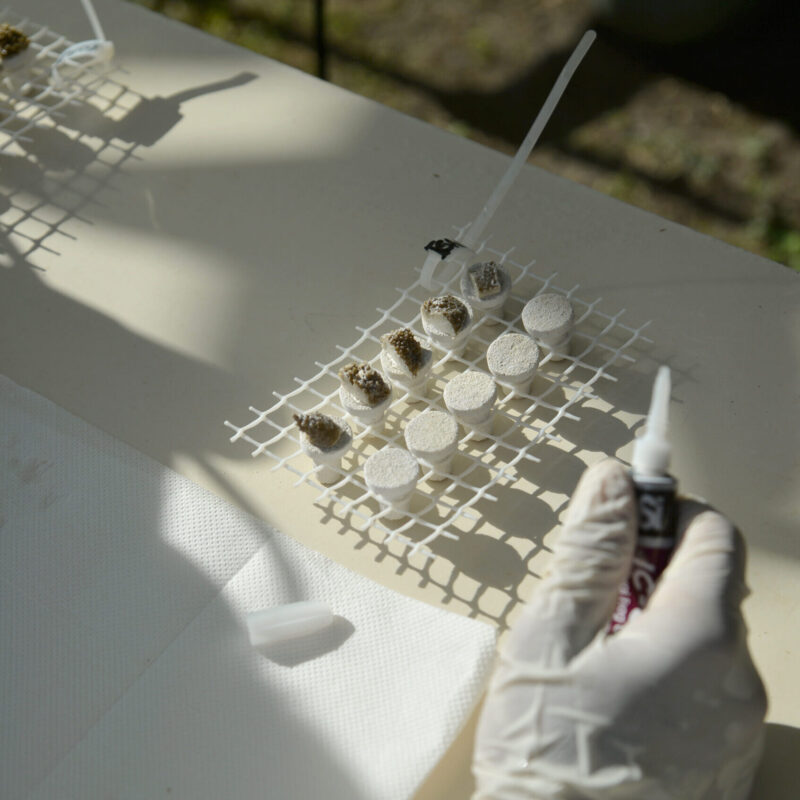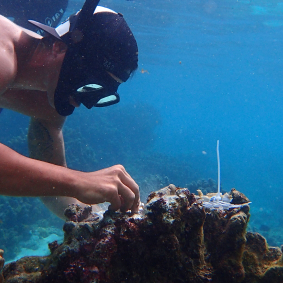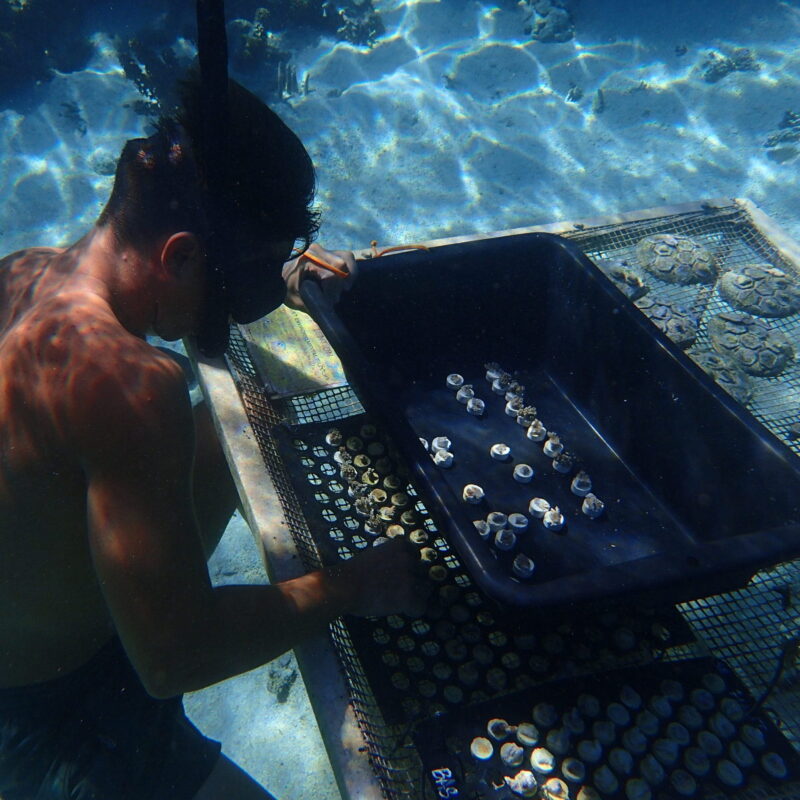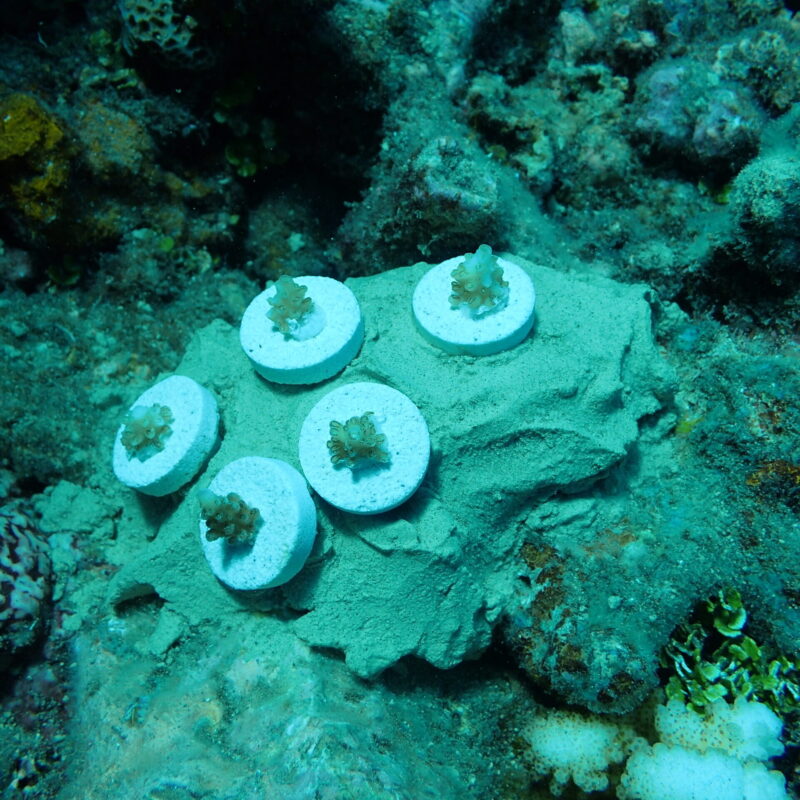The coral
Corals are marine animals capable of producing a hard limestone skeleton, which forms the foundation of coral reefs. In Puna’auia, coral reefs are important for coastal protection, marine biodiversity, fishing, surfing and other water activities. Threatened by climate change and human activities, the coral reefs of Puna’auia undergo a massive bleaching episode in 2019: coral mortality is high, giving way to faster growing algae threatening the balance of the entire ecosystem . Coral restoration assists corals in their resilience and the maintenance of the reef foundation.
Coral microfragmentation consists of fragmenting pieces of coral into small sections of 1 cm². This action has the effect of accelerating their growth, the microfragments are then transplanted or placed on a transition table close to each other allowing their fusion and increasing their surface more quickly. The synergy of the two actions will limit the algal domination of the Puna’auia reef.
We take fragments of opportunity or directly from a mother colony within a limit of 5% of its surface, in order to limit our impact.
The Spots
Putnam LAB
The Putnam LAB, attached to the University of Rhode Island in the United States, conducts research on reef-building corals and other calcifying marine invertebrates. Their study focuses on physiological ecology and the response of organisms in a context of environmental stress and climate change. Doctor Hollie PUTNAM, researcher and expert in coral genetics supervises the scientific protocol of our team.
